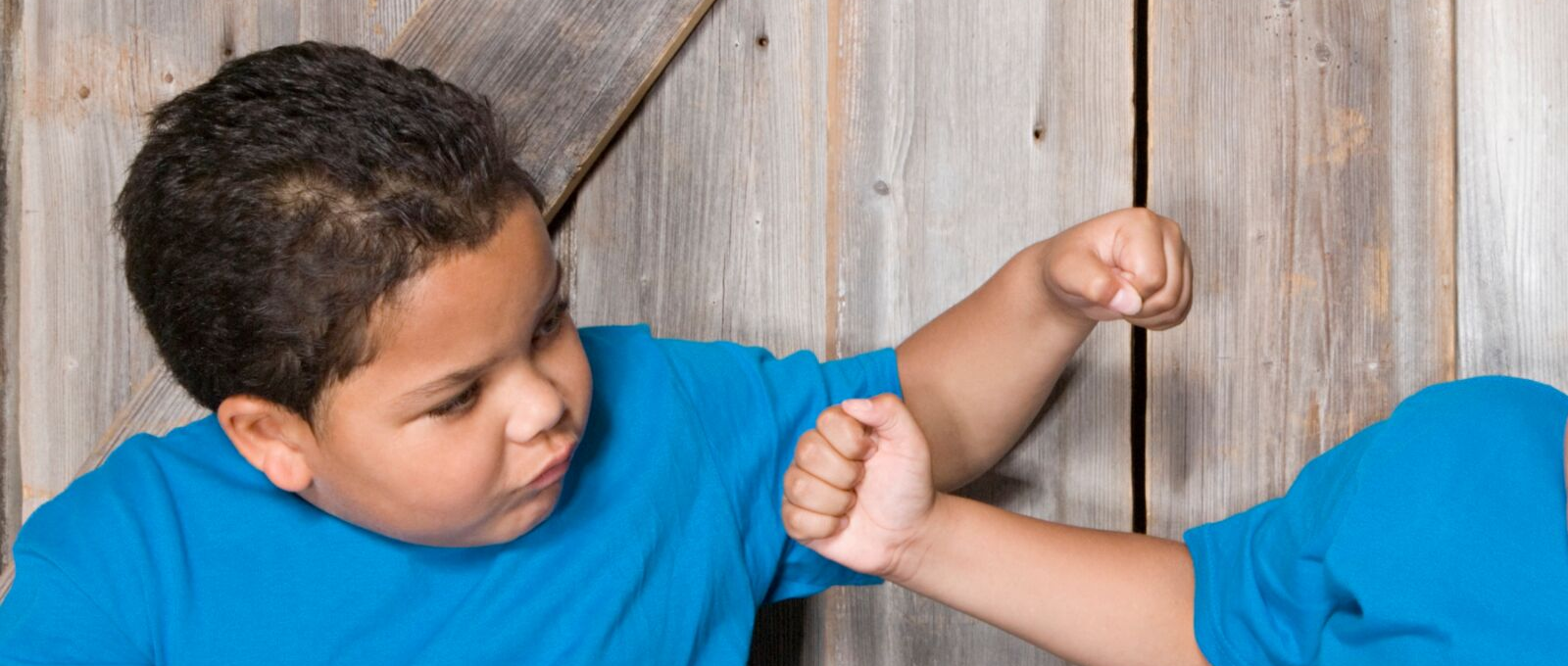Parent question:
I am looking for a good technique to stop my 5 yr old from hitting me when he doesn’t get his way. I usually use the 1-2-3 counting and then time out in his room, but find for hitting it doesn’t work well, because I am not going to let him hit me 3 times so it is 3 straight to his room, but in these situations he seems to continue to melt down and will hit me when he comes out of time out too then it is back in again. Eventually he will cool off and say sorry but how do I get hitting to STOP. It happens way too often. We talk about hands are for hugging not for hitting and please use your words to tell me why you are upset don’t hit etc. but nothing seems to help. – Abby, Minnesota

Abby,
Most of us have a pretty big emotional response when kids hit but in and of itself (assuming the child is not being exposed to direct or indirect violence), hitting in a five year old is not uncommon.
Emotional regulation
That said, you are right not to tolerate ANY hitting. It sounds like your little guy is having difficulty regulating his emotions. When we get dysregulated, it is hard to keep our “thinking brain,” and executive functions engaged. This often means that we do things in a more automatic (and sometimes ‘regressed’) way, even though we “know better” when we are calm and regulated. It may be helpful to think of your son’s behavior more as a “problem of regulation” than a “behavior problem.”
What to do when your kids hit?
The question then becomes, “How can I teach my son to regulate and appropriately express his emotions when he is upset?” Here are a couple of ideas:
- When your son hits you, get down on his level to make eye contact, gently but firmly hold his hands and say, “No hitting. Hitting is not safe. In our house we all get to be safe.” Try to keep your own affect calm, firm and matter-of-fact so as not to contribute to his dysregulation with your own. It’s okay to fake it! He needs to know you can tolerate and hold his “big feelings,” even when he feels like he can’t.
- Let him know you understand he is angry (disappointed, frustrated, etc.) and why. I know you’re mad because you really want to go outside right now, but we’re going to have dinner.
- Give him the words to say (it’s hard to remember what “use your words” means when you’re upset), e.g. You can say, Mom, I’m really mad at you!
- Let him know that he needs “to calm his body.” At a time when you are both calm, make a plan together about what you expect of him and teach him strategies for doing this, e.g. count to ten, take deep breaths, etc. Model this for him when you need to “calm your body” (rush hour traffic?). Know that these are skills that take time to develop.
- Consider using “time in” rather than “time out.” Let him know you are going to “help you calm your body” by sitting next to him or staying in his sight and taking deep breaths with him.
- When things have settled down, then process the incident. Let your son know that you were both mad, but you are all done being mad and ask if he is all done. Kids need to know that these big feelings have an end and don’t disrupt important relationships.
- Take care of yourself. This is hard work!
Good luck,
Michele Fallon
Infant Mental Health Specialist